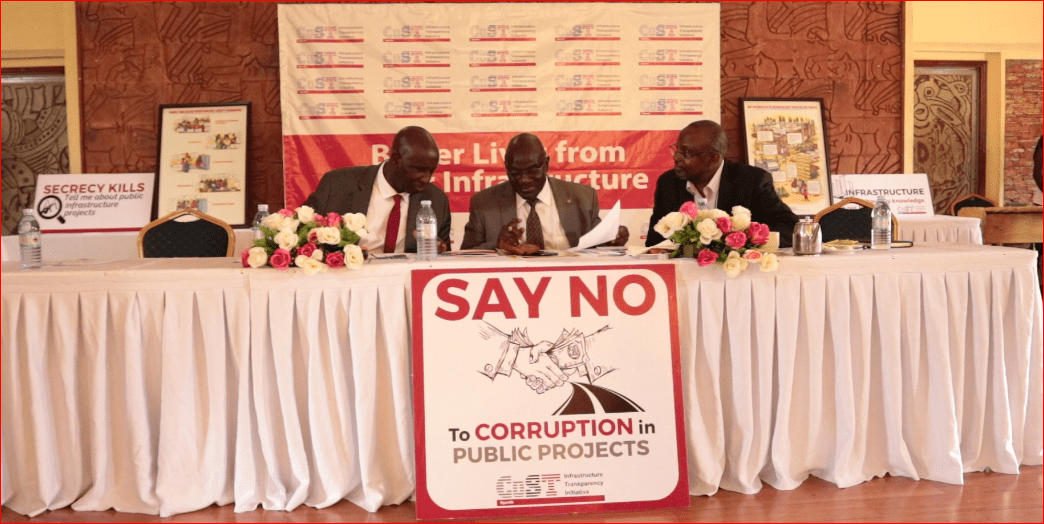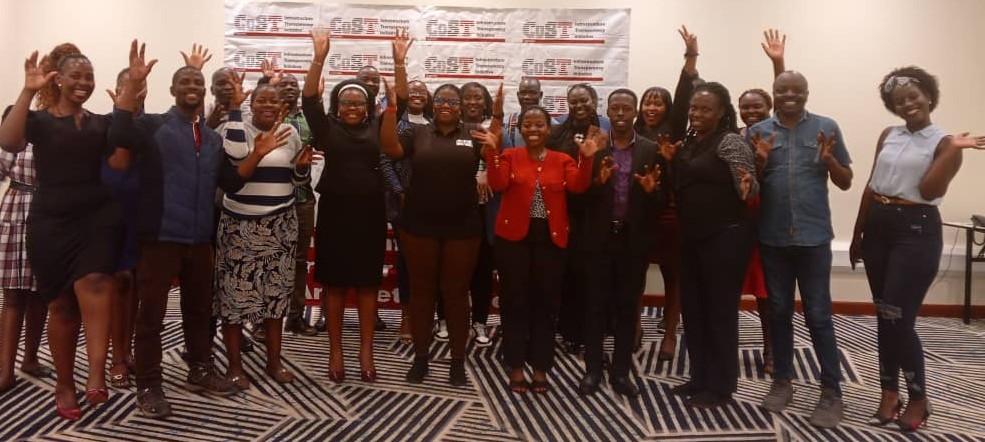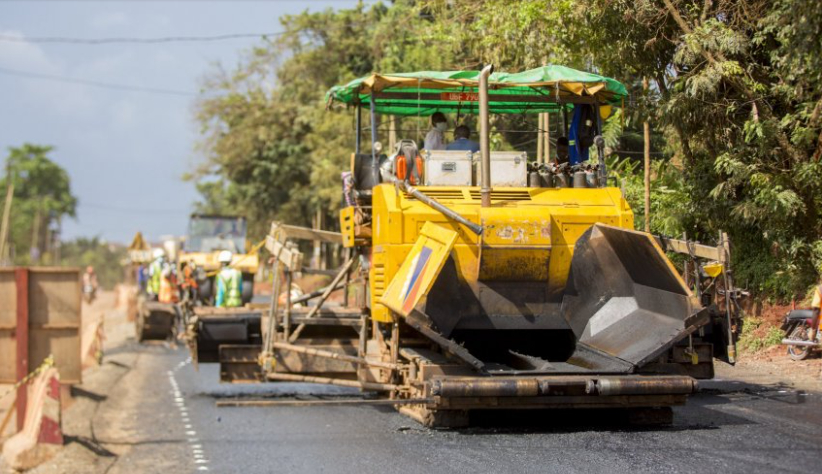
The Minister of Works and Transport, Gen. Edward Katumba Wamala committed to introducing CoST Uganda to the Office of the Prime Minister, in order to provide mechanisms to scale up CoST to other Government Procurement and Disclosing Entities. The Minister made this commitment at the recent publication of CoST Uganda’s 3rd Assurance Report on 22nd January 2020, at the Golf course hotel, Kampala.
The report was focused on 13 projects from 5 Procuring and Disposing Entities in Uganda. The Government institutions involved included; PPDA who recommended the 13 projects, Ministry of Health, Ministry of Education and Sports, Ministry of Energy and Mineral Development, Ministry of Water and Environment and UNRA.
Hon. Nathan Byanyima expressed concern that “UNRA did not perform well in the 3rd Assurance Process because they did not disclose the required information. Noting that, failure to be trusted in small projects depicts a lack of confidence and trust in major or big projects. It is important that the agency embraces disclosure as per CoST standard; he urged UNRA that having invited CoST to Uganda, this meant that there was a need, and thus UNRA should not abandon what it started, called for increase in disclosure, increased citizen engagement at all project stages, and have 80% of the work be done by the local people. He joyfully added learning from Wakiso that when you embrace CoST, you get results”
Findings from the report indicated that pro-active disclosure was at 43% and reactive disclosure was at 42% making the overall disclosure at 43%. Low disclosure was attributed to delays in data retrieval and refusal to disclose data by some of the procuring entities. Ministry of Education and Sports initially, for instance, declined to disclose information reactively but later reconsidered and granted access to records. However, this happened after the data retrieval exercise had ended and the information was not included in this report. UNRA and the Ministry of Energy declined to reactively disclose project information despite various engagements.
Although there was progressive stakeholder engagement in the implementation of the Assured projects by the Ministry of Water and Environment and Ministry of Health, findings revealed that for most of the projects, there was a low level of citizen and other stakeholder engagements where they are engaged. Citizens still demanded continuous and timely engagements with the correct project and contract information. There was a lack of ownership of projects amongst the public and projects still termed to belong to Government.
During the launch, stakeholders expressed their appreciation to CoST Uganda for enhancing their capacity in engaging duty bearers in the delivery of public infrastructure projects. Some of the testimonies included;
Andrew Kyamagero, a journalist under CoST Media Team noted; “It is everyone’s obligation to take responsibility to engage civic leaders on any defects they encounter on physical infrastructure. He asked the informal sector to use their smartphones and communicate with photos with KCCA and UNRA for example. He noted this having been a journalist under the CoST mentorship process for journalists and had reported on some roads to KCCA which were worked upon”
Sam Bambaza from HOVITA, a CSO in the roads sector testified of having used the knowledge and skills in the Energy sector, created awareness in his community and they filed an information request demanding some information from the Ministry of Energy and Mineral Development regarding rural electrification and engagements were ongoing. He asked CoST to summarize key areas for the public to focus on when projects are being planned, procured, and implemented for them to easily understand how and when to engage.
UNRA noted challenges regarding land acquisition and stakeholder engagement. CoST Uganda’s role is to build trust among stakeholders. Experience from Wakiso district would address UNRA’s challenges, citizens when they understand the benefits of the project, they will grant access to land without compensation.
The Directorate for Ethics and Integrity, (DEI) Office of the President testified of having worked with CoST to build the capacity of 8 district local governments in infrastructure monitoring through the District Integrity Promotion Forums.
Hon. Nathan Byanyima CoST Uganda’s Multi-Stakeholder Group Chairperson noted that Roads should be wide enough, he asked the local people to interest themselves in demanding for information and explanations when construction works are being made. He asked Government agencies responsible to build citizens capacity to demand accountability in the public infrastructure sector, noting that it has been left for the contractors and consultants, yet, these cannot build and hold themselves accountable as well.
Upon the awards, the Minister of Health, Hon. Ruth Acheng noted on her tweeter; “Her Ministry commits to even do more to enhance infrastructure transparency” While the Permanent Secretary, Dr. Diane Atwiine, noted that “the award was dedicated to all stakeholders who worked with the Ministry to ensure that they opened up and that they looked forward to performing better in the coming years”
The Commitments from the various stakeholders;
- The Minister of Works and Transport committed to introducing CoST to the Office of the Prime Minister in order to provide mechanisms to scale up CoST to other Government Procurement and Disclosing Entities.
- The State House Infrastructure Monitoring Unit committed to strengthen the partnership with CoST, use the reports to further monitor the performance of the assured projects and address the issues raised in the report.
- Ministry of Health committed to increasing disclosure and more engagements with stakeholders on assured projects, they committed to even do better in the year 2020.
- UNRA committed to disclosing project data, and to also provide extracts of the required project and contract data to inform CoST Assurance processes, they also committed to strengthen the partnership and open up to stakeholders.
- The Minister of Works and Transport also committed to engaging all agencies under his ministry to increase disclosure.
- KCCA committed to engage the informal sector in infrastructure monitoring and to address the challenges on the city roads especially the manholes (one around the Bahai Roundabout).
We continue to implore all stakeholders to use the assurance findings to engage, monitor and report on any areas of concern on public infrastructure projects. We also encourage stakeholders, especially the project beneficiaries to own all infrastructure projects being constructed within your localities because every Government investment is the accountability of your taxes, and or a tax from someone from another country, it is your duty to monitor how these taxes are used. You would not like it if the poor infrastructure is all you see around because you did not protect and preserve it.



